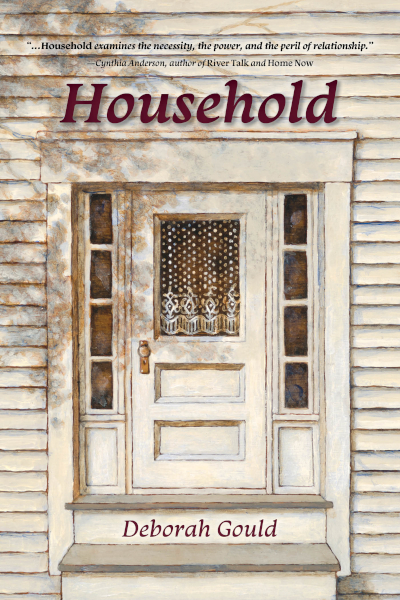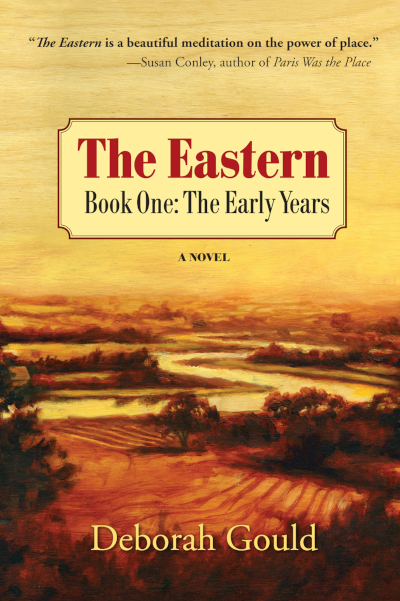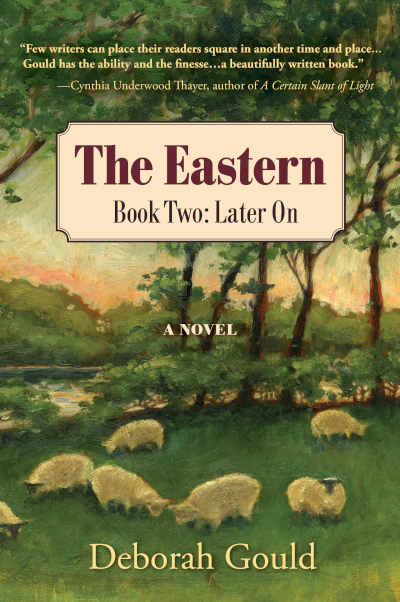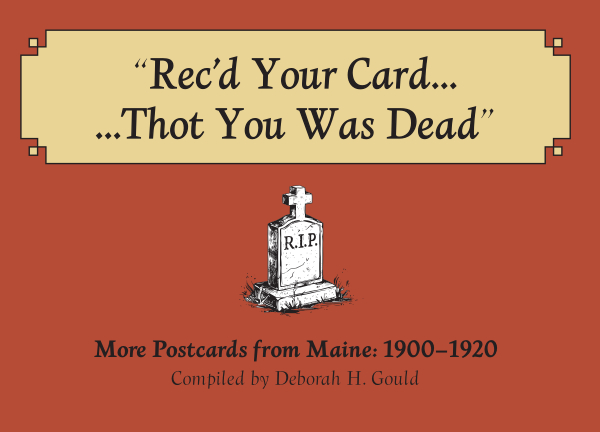“…Household examines the necessity, the power, and the peril of relationship.”
—Cynthia Anderson, author of River Talk and Home Now

Household
“The first time it happened,” I said, “I nearly choked on my surprise.”
So begins Margaret Wilson’s painful telling of a relationship gone awry; something is wrong, she knows, but she cannot make sense of it.
Bewildered by Lee’s smoldering anger and hurtful behavior, Margaret turns to Cooper, the counselor who works in the local elementary school where Margaret teaches.
As Cooper leads her through the struggle to maintain her emotional footing, Margaret explores the history of the house she and Lee own in the small town of Hadley, Maine. As her relationship spins out of control, she turns to four generations of the Thatcher family that lived there from the early 1800s to the 1920s, finding strength and support in their common, lovely, lives.
Combine the themes of domestic danger (present) and safety (past) with a rich description of the world they share—the farmhouse itself, the fields and woods of the Middle River Valley—and Household becomes a narrative of tension and sweetness, a balance of abuse and refuge.
$17.95
The Eastern Novels
In the 1990s, I bought an old side-hall entry Greek Revival farmhouse in East Pittston, Maine; the history of that particular house brought me to Joel Thompson, who bought the land in 1811 and whose descendants owned the property for the next hundred years. I researched some of the neighboring farms, too, and soon I had five families of settlers—Thompson, Blodgett, Crocker, Call, and Stilphen—who established an agricultural neighborhood on the Eastern River, one that stayed strong through four generations, well into the 20th century.
Those houses, all but two gone now to cellar holes and sumac, provided the overall structure for The Eastern novels. Public records—town meeting reports, cemetery plots, census returns, probate files, commentary and social notes from old Gardiner area newspapers—framed the details of names, dates, and events.
From there, though, I was on my own.
Both fiction and social history, The Eastern novels flow through the experiences and truths we share with those who have lived before us.
“The Eastern is a beautiful meditation on the power of place.”
—Susan Conley, author of Landslide

Book One: The Early Years
In the early 1800s, five families settle on the Eastern River in East Pittston, Maine. Together, they build a strong and lasting neighborhood, an agricultural community based on solid New England values of cooperation and reciprocity.
The Early Years was a Fiction Book Award Finalist in the 2016 Maine Literary Awards.
$17.95
“Few writers can place their readers square in another time and place…
…Gould has the ability and the finesse…”
—Cynthia Underwood Thayer, author of A Certain Slant of Light

Book Two: Later On
After the Civil War, the Eastern River families of East Pittston prosper during Maine’s Golden Age of Agriculture. As they move into the 20th century, however, social and industrial changes present challenges to the close-knit agrarian neighborhood.
“Set in a corner of hardscrabble rural Maine, these stories…come alive through Gould’s distilled, elemental prose.” —Susan Conley, author of Landslide
$17.95

Rec’d Your Card…Thot You Was Dead
May 4, 1914
I suppose you have heard the awful gossip about me, eh?
Back in the early 1900s, when cities in Maine established house-to-house postal routes and rural free delivery to outlying villages, the popularity of postcards surged. Cards were relatively inexpensive to buy and mail, and they provided just enough space for quick notes to family and friends living beyond horse-and-buggy distance.
Most postcard collections focus on the images of city and country scenery, but here’s a sampling of the messages themselves, full of humor, secret codes, unfamiliar vocabulary, and, most of all, the everyday details of a way of life that’s long, long gone.
$12.95